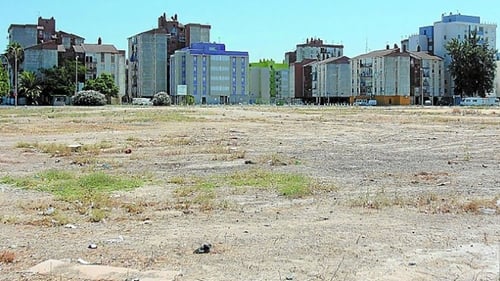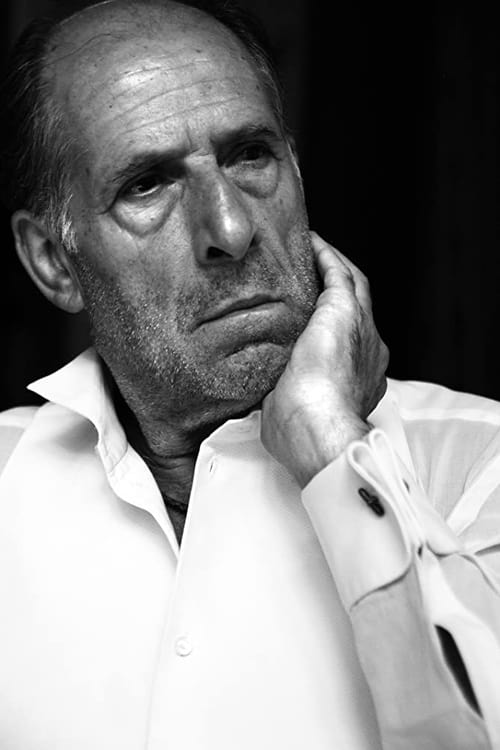L'est de la brúixola (2005)
Gênero :
Runtime : 0M
Director : Jordi Torrent
Sinopse
The concern of a group of people to avoid the sale of the Barcelona pension where they live is altered by the appearance of Dabashree, an Indian woman, and her 8-year-old son. The mysterious mission that Dabashree takes to Barcelona will awaken the curiosity of the inhabitants of the inn until an unexpected event will cause the woman to reveal her secret.

A memory of Marilyn Monroe (1926-1962), woman, actress, goddess, myth, in the words of the Spanish director and scriptwriter José Luis Garci, who returns to his childhood and recovers a lost paradise.

One of three films commissioned by the Jeonju International Film Festival in 2006. It is a short film based on Beauty and an Airplane, a short story by Gabriel Garcia Marquez, Ratanaruang's film tells the story of a man (Ananda Everingham) who falls in love with a woman (Khemapsom Sirisukha) he sees at the check-in counter of an airport. Most of the film takes place in the sleek blackened interior of the plane's cabin -- the camera panning between the two seats, lighting now one, now the other of the occupants. The two passengers never exchange a word, title cards occasionally allowing us to know what the man is thinking. Those familiar only with his work on Dumplings or Wong Kar-wai's films might be surprised at cinematographer Christopher Doyle's uncustomary restraint. Christopher Doyle doubles as both taxi driver and captain in the film.

In a Japanese suburb, the film follows two children aged about 11 as they play, in their adventures and imagination. Debutante Shibutani manages beautifully to capture the mood of play in childhood, as a result of which the abuse and selfishness of their parents hits home even harder.

A porn actress decides to stop working in that industry to devote herself to conventional cinema. In her first non-pornographic shooting she faces a situation she did not expect... a sexual scene. Part of the '2000 Jeonju Digital Project'.

Short documentary about the marginalized youth in Canyelles, Barcelona.

A woman asks the hospital in which her father is due to stomach cancer to be allowed to return home to celebrate the New Year with his family. Part of the 2002 'Jeonju Digital Project'.

In suburban Tokyo, commuters find themselves waiting every day with the same group of strangers for the same seat on the same train. Perhaps over 1000 days never knowing who they are, what their lives are like, where they live, who they love. Until one day, things change.

A young man from Barcelona (Marc) arrives to Venice and confronts his father (Paco), who has not seen since he was two years old. This sudden encounter with his forgotten son both shocks and pleases Paco. Marc, filled with long repressed resentments, discovers in Paco a welcoming individual. The emotions seem to move towards a feeling of connection and understanding between father and son. But Paco's semi-lies, his complex and opaque past, his unclear present, quickly transforms the encounter into a muddy pool of emotional uncertaintie.

A man in his late thirties sees his friends moving away from him more and more because of the responsibilities that come with entering adulthood, while he studies poetry and wonders if it is worthwhile to follow his relationship or settle his head and find a stable job.

Plastic city suffers from the big chill. The extreme weather conditions prohibits and human existence on the ground surface. An hostel is under this deserted landscape. A doorkeeper of the hostel Kirin is an orphan and nobody knows exactly where he is from. People named him Kirin simply because he earns his life by collecting emptied Kirin beer cans. One day he meets a woman nomad Lanian.

The beautiful Awa, from a poor background, decides to marry for money rather than love and ends up with the much older Karim. While married, she continues to love the much younger Bouba. On the happy occasion of Awa’s birthday, a macabre plan is to be set in motion.

Throughout the streets of Huelva, a man with his guitar has been disambiguating for years, day and night he goes out into the streets to make a living asking for money in bars and terraces. His guitar almost never has the six strings, his hands are dirty, his mind long ago could not stand the life that he had to live, and he continues as he can stuck to that guitar with which he expresses himself continuously, indefatigable. That vagabond, an omnipresent street artist, is the "Niño Miguel", considered by many to be the best guitarist in the history of flamenco, a genius who revolutionized the guitar with only two records in the 70s, a source of inspiration for all other guitarists... a guitarist of guitarists, a living legend, a mystery, a misunderstood genius, excluded from society: The shadow of the strings.

Documentary based on the figure of Manuel Agujetas (Manuel de los Santos Pastor 1939-2015), mythical cantaor and one of the last representatives of the Flamenco de Jerez school. Essential figure of flamenco.

Documentary about the marginal neighborhood 'Las tres mil viviendas', in Seville.

A broker tries to get rich by a scam, but the police discover his intentions so he becomes a fugitive who runs aimlessly until he reachs a battlefield. Part of the 2002 'Jeonju Digital Project'.

Fu Chu is one of the most important and strict prisons in Japan, where they have more than 2,000 people living together. In addition, it is the one that has the greater number of foreigners. Through the testimony of two French prisoners we know first hand how the inmates of Japanese prisons live behind bars. Fu Chu is known worldwide because many ex-convicts have sued the Japanese State for the treatment received during their incarceration. Amnesty International has been interested in this problem and has denounced the methods used to consider that they violate Human Rights. In this documentary the cameras enter for the first time in the premises of the prison and show how is the strict regime of this institution.

Japan has the world record for sexual abstinence, but the pornographic industry is very lucrative. The documentary reveals how the number of singles has doubled, and how older couples do not have sex. According to the National Institute of Japanese Sexology, "sexless" are those who have sexual intercourse with a frequency lower than once a month.






















